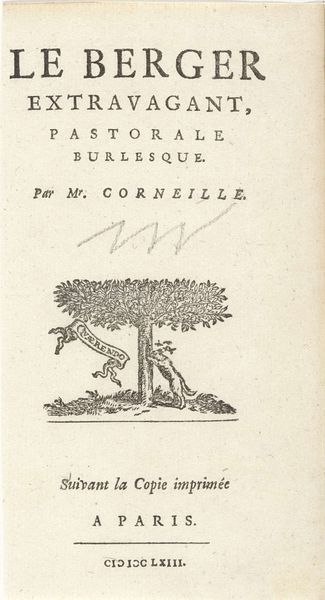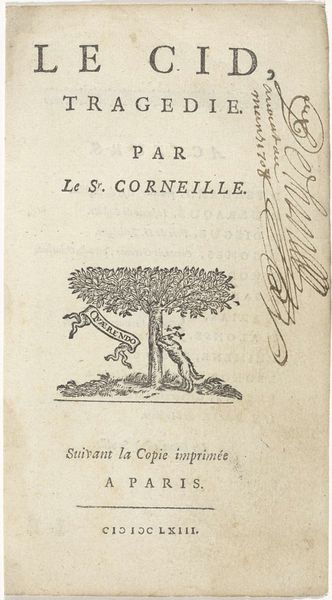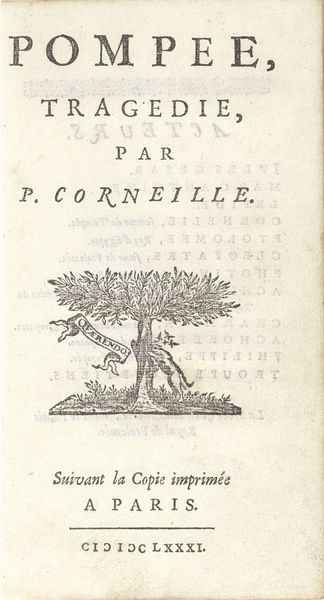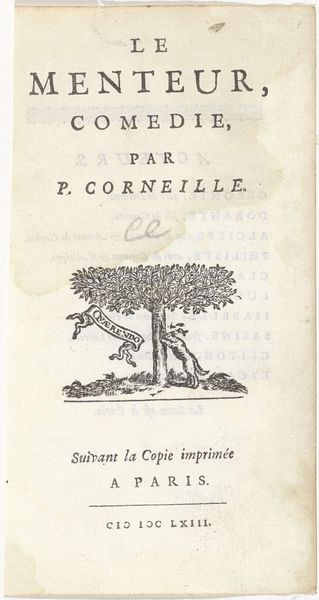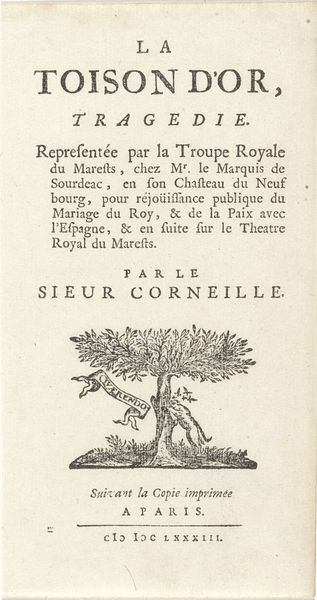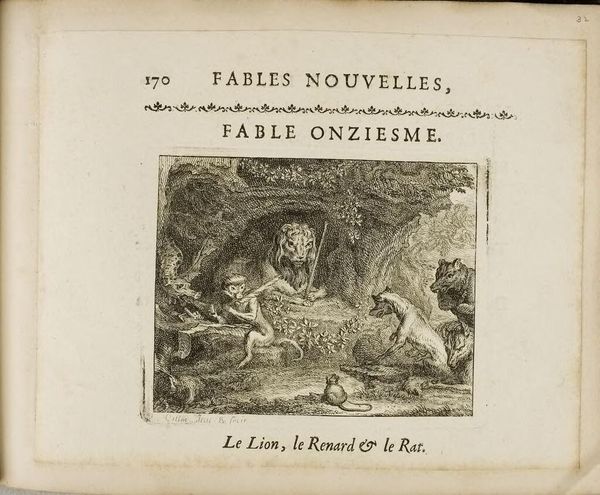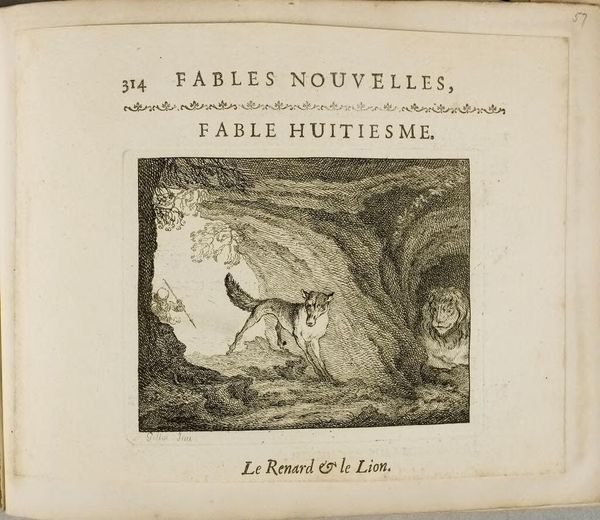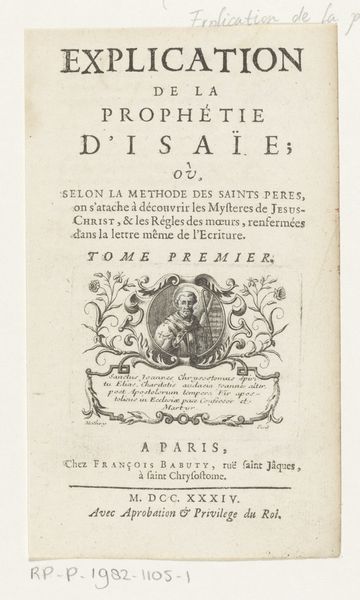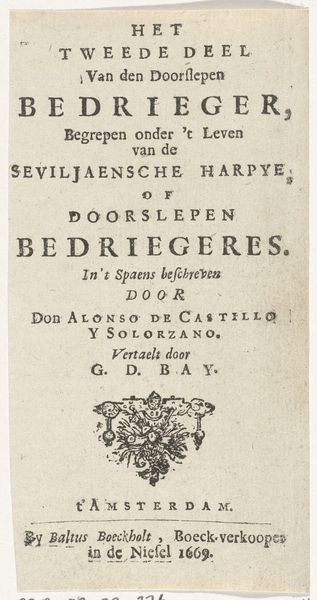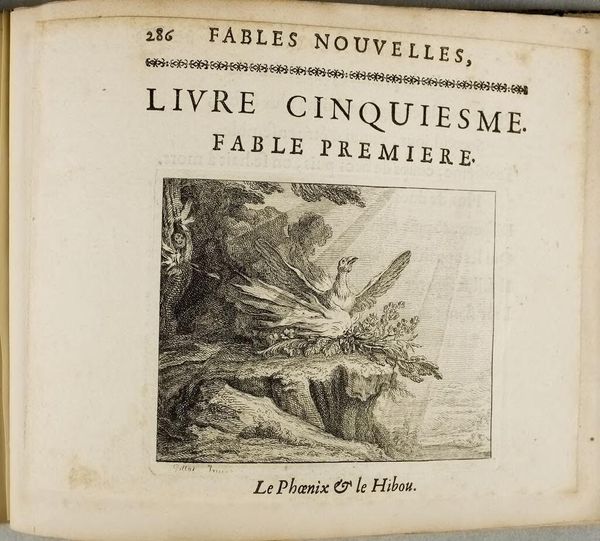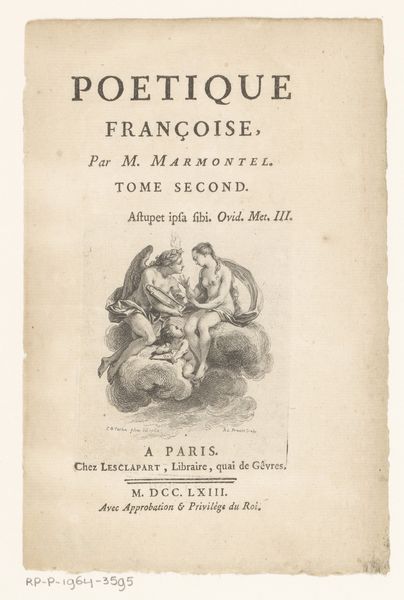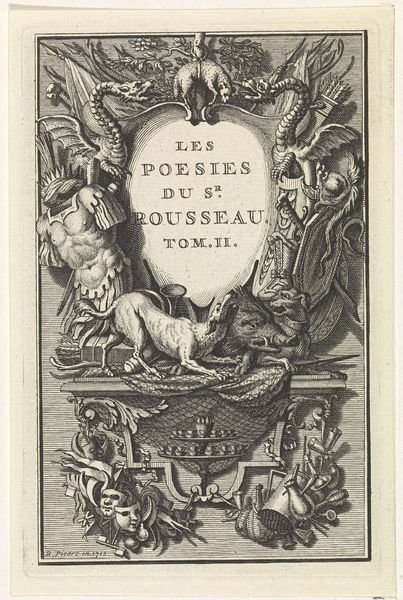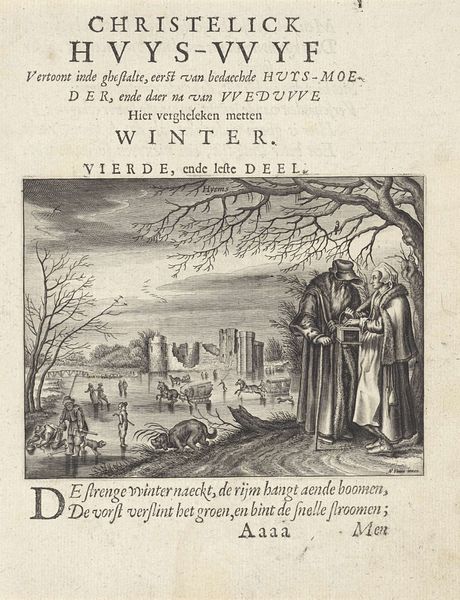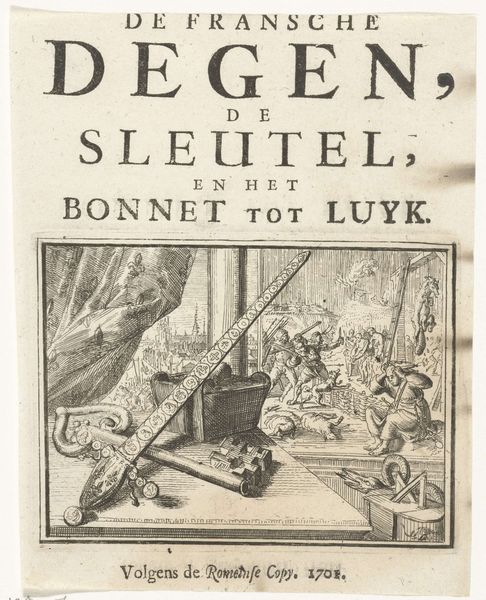
#
tree
#
script typography
#
hand-lettering
#
dog
#
old engraving style
#
hand drawn type
#
hand lettering
#
hand-written
#
hand-drawn typeface
#
stylized text
#
pen work
#
handwritten font
Dimensions: height 125 mm, width 69 mm
Copyright: Rijks Museum: Open Domain
Curator: Ah, let's pause here. I want to draw your attention to a fascinating engraving called "Hond zoekt in de stam van een boom," or "Dog Searching in the Trunk of a Tree," dating back to 1667. It resides here at the Rijksmuseum. What catches your eye first about this piece? Editor: The immediate feeling is one of understated tension. The meticulous linework creates this delicate image, but the dogs—there are two, right?—introduce a note of desperate searching or maybe anxious vigilance. Curator: Yes, two dogs indeed! One sniffs inquisitively at the base of the tree, while the other leaps with a banner, a Latin inscription, "Quaerendo," which means "by searching." The tree itself... it strikes me as a symbolic representation, perhaps of lineage or the passage of time? Editor: Exactly! Trees so often act as a vessel for collective memory. In this context, combined with the anxious dogs, the "Quaerendo" banner feels significant. It's like this quest—what are they searching for?—is rooted in something much deeper than their own experience. A lost legacy? Curator: And "Attila, Roy des Huns"—"Attila, King of the Huns" from the title. It adds a layer of historical weight to the scene. What are we to make of Attila’s legacy and this desperate, yearning search? Editor: Perhaps it suggests that even mighty kings, like Attila, leave behind fragmented narratives that future generations endlessly seek to piece together. It evokes the insatiable desire for understanding our roots. Is history like a gnawed tree, its bark peeled back layer by layer, always something missing? Curator: The ambiguity of that tree speaks to something essential about narrative itself – the stories we tell are never whole. There are always parts obscured, demanding us to keep searching, "quaerendo." What's uncovered might lead to a reconstruction of our present as much as illuminating our past. Editor: This little engraving manages to say so much about the enduring power, and inherent fragility, of stories. Now I feel like I need to spend an afternoon thinking about dogs.
Comments
No comments
Be the first to comment and join the conversation on the ultimate creative platform.
